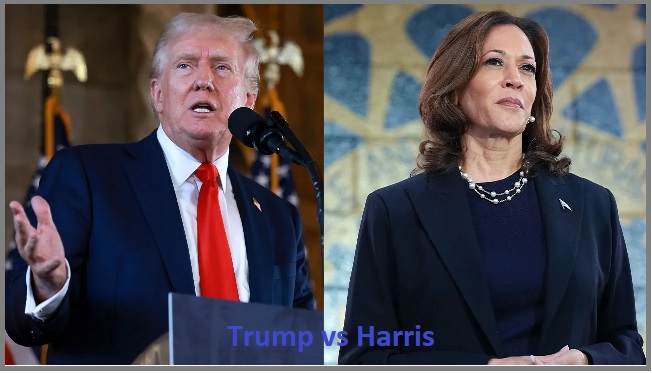
(Photo : Trump vs Harris)
Trump vs Harris
- A recent survey reveals inflation and abortion as top concerns for Indian-Americans.
- The survey shows a clear partisan divide, with Republicans prioritizing economy and Democrats focusing on abortion.
- The Indian-American community, now the second-largest immigrant group in the U.S., shows diverse political leanings.
- The growing influence of this community underscores the need for nuanced political engagement.
The recent survey conducted by the Carnegie Endowment for International Peace has brought to light the primary concerns of the Indian-American community in the United States. The survey, which included 714 Indian-American citizens, revealed that inflation was the top concern for 17% of the respondents. Abortion and reproductive rights, as well as jobs and the economy, were the next major issues, each cited by 13% of the respondents.
The survey also highlighted a clear partisan divide among the respondents. Among those who identified as Republicans, 39% considered the economy, encompassing both prices and jobs, as their primary concern. This contrasted with the 24% of Democrats who shared this concern. Interestingly, the issue of abortion was a priority for 19% of Democrats but only 5% of Republicans.
This partisan divide mirrors the broader national sentiment. Former President Donald Trump and other Republicans have primarily criticized Vice President Kamala Harris and the Democrats on economic issues, particularly inflation, along with immigration. On the other hand, Democrats have focused more on abortion, followed by the economy.
Diverse Perspectives within the Indian-American Community
The Indian-American community in the United States has grown significantly in recent years, with more than 5.2 million people of Indian origin residing in the country. Indian-Americans are now the second-largest immigrant group in the United States and have emerged as an important political actor thanks to the community's rapid demographic growth, the close margins in modern presidential elections, and the diaspora's remarkable professional success.
However, the Indian-American community is not a monolith. Their political leanings and priorities can vary significantly, reflecting the diversity within the community. For instance, there has been a modest shift in the community's preferences, with a greater share of respondents willing to vote for Trump since the last election. Twenty-two percent of women intend to vote for Trump while a significantly larger share of men, 39%, plan to cast their ballots for him. This gender gap appears starkest with younger voters.
The survey also revealed that Indian-Americans rate Indian American Republicans such as Nikki Haley, Vivek Ramaswamy, and Usha Vance, the wife of Republican vice presidential nominee JD Vance unfavorably. However, there is evidence of asymmetric polarization since Democrats rate prominent Republicans worse than Republicans assess leading Democrats.
The Growing Influence of the Indian-American Community
The survey results underscore the importance of understanding the diverse perspectives within the Indian-American community and the need for political parties to engage with this community in a nuanced and thoughtful manner. As the Indian-American community continues to grow and evolve, their political influence is likely to increase, making them a critical constituency in future elections.









